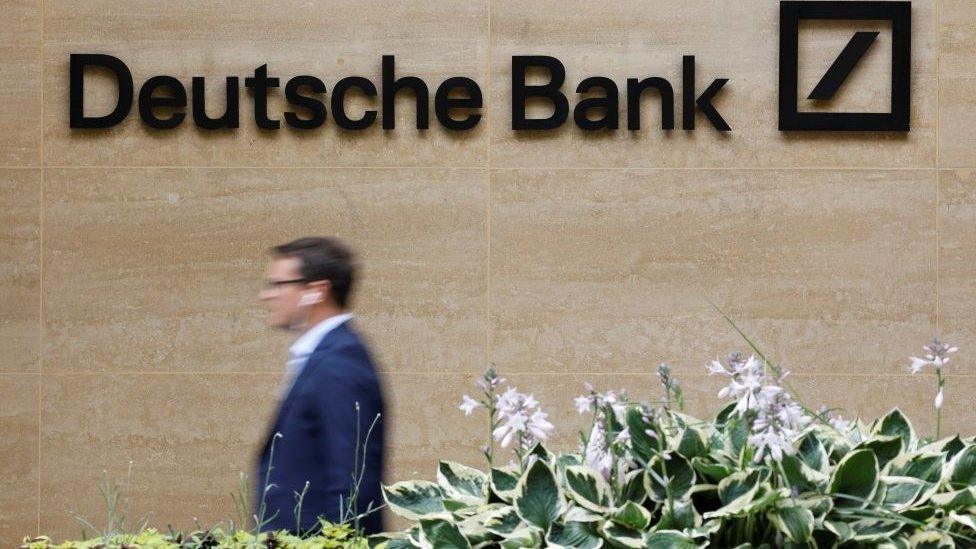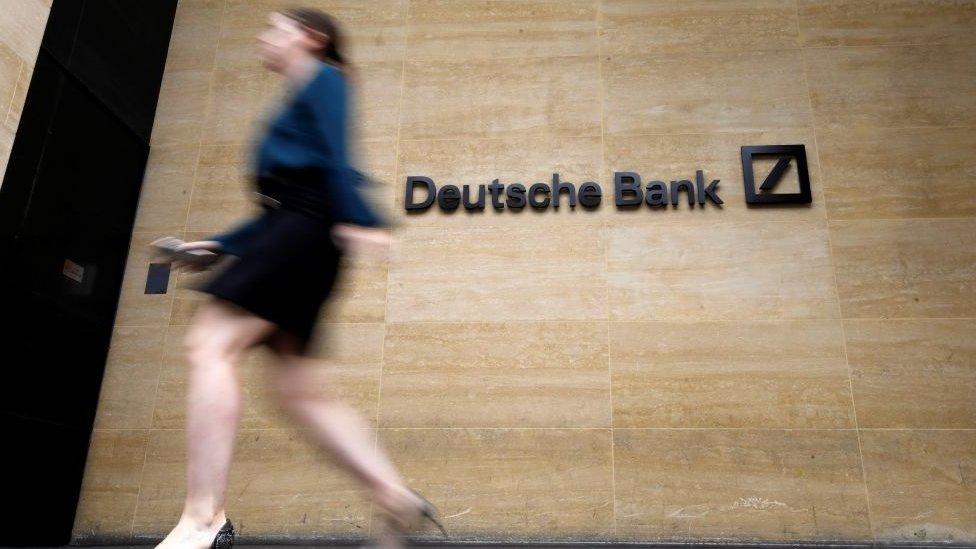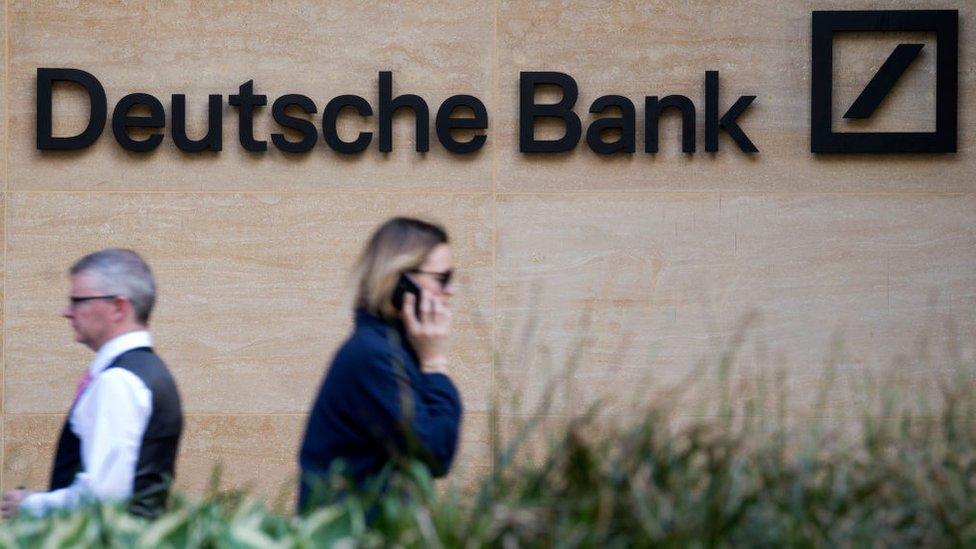What do the Deutsche layoffs mean for the UK?
- Published

How many jobs are being lost in the UK?
Certainly hundreds, possibly thousands. The businesses Deutsche Bank is exiting or cutting back are predominantly based in New York and London so it seems very likely the axe will fall harder in the UK and US than in Germany.
The bank is cutting 20% of its global workforce and the bank has nearly 8,000 people in the UK. That arithmetic gets you into the thousands quite easily.
Does it mean we are in the foothills of another financial crisis?
No. This is a problem specific to Deutsche Bank.
In the 1990s and 2000s, Deutsche tried to gatecrash into the premier league of investment banking. It spent heavily on recruiting teams of merger and acquisition specialists as well as traders in shares and bonds.
The chief executive acknowledged it was spread too thinly, getting into all banking businesses many of which it lacked expertise and scale in. When the financial crisis hit it was slow to respond by cutting its business back to a more sustainable size.
It is paying the price for that now.
What does it mean for the UK?
It's not great news. Apart from the brutality of giving people hours to clear their desks - the decision by Deutsche to shut down its share trading division will mean less activity taking place here, less money being paid to UK based employees and so lower tax receipts for the Exchequer.
Until we know how the job losses break down geographically it's hard to estimate how big an impact we will see. But given there are 350,000 working in the city of London, the loss of 1,000 to 2,000 workers will not be hugely significant.
The real damage may be to confidence. Although others will snap up morsels from Deutsche's vacated table (Barclays thinks this is a real opportunity as the last European investment bank standing), how much of the business will stay in London? At a time when the prospect of Brexit has seen people and capital leak out of the UK to other centres in Europe, there must be some risk that the activity Deutsche was doing in London will be done elsewhere.
A financial centre like London is like a coral reef - an entwined ecosystem of banking, legal, accounting and insurance elements which feed off each other. It took centuries to build and can't be killed off easily but that doesn't mean it can't suffer from erosion and that you can't chip a sizeable chunk off.
That's what today's Deutsche move feels like - a bit of the reef has died.
- Published9 July 2019

- Published25 April 2019

